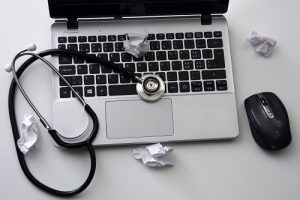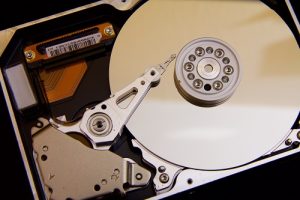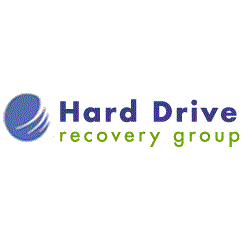|
It’s frustrating when there’s no internet. You can’t seem to do anything. Everything you do seems to be dependent on the internet. So, when you can’t connect, you can’t work. It doesn’t have to be that way. You can still stay productive even if you can’t connect to the internet. Here’s a list of things to do when you can’t seem to connect to the internet. The first on the list of things to do to stay productive is to check out services that aren’t web-based.
(Via: https://www.popsci.com/stay-productive-offline) The second productive task you can do when you can’t seem to connect to the internet is to do some cleaning up.
(Via: https://www.popsci.com/stay-productive-offline) The best time to organize files is when you just can’t seem to connect to the internet. As boring as it may sound, just do it.
(Via: https://www.popsci.com/stay-productive-offline) The third productive thing you can do is to finally catch up on other tasks. Aside from computer-related stuff, there are other things you can do.
(Via: https://www.popsci.com/stay-productive-offline) Another productive thing you can do is to take advantage of the time to brainstorm new ideas.
(Via: https://www.popsci.com/stay-productive-offline) If you can’t seem to get any work done because there’s no internet connection, why not take advantage of the time to learn something new, like Photoshop. You can also use the downtime to learn more about Excel.
(Via: https://www.popsci.com/stay-productive-offline) How about you take a walk? You probably need it.
(Via: https://www.popsci.com/stay-productive-offline) The most productive thing you can do when there’s no internet is to check your backups. This is not to say that you shouldn’t check your backups when there’s internet connection, it’s just that it’s probably not a priority of yours. It’s important to check your backups. Check your external hard drives and see if they're working. If they're not, then why not seek professional hard drive recovery service to make sure your backups are retrievable. Now, be careful. Just because you have some time to spare, doesn’t mean you can tinker with your hard drive. Don't waste time doing that. Instead, leave it to the experts who can find some repairable solutions to a https://www.harddriverecovery.org/hard-drive-failure.html. The post How To Be Productive When You Can’t Connect To The Internet is available on HDRG via https://www.harddriverecovery.org/blog/how-to-be-productive-when-you-cant-connect-to-the-internet/
0 Comments
Is your Mac backed up? If it's not, then back it up. Just because it’s a Mac, doesn’t mean it’s spared from any kind of damage. You have to think ahead. Back up your Mac to protect your data.
(Via: https://www.businessinsider.com/how-to-backup-mac) There’s really no reason for you not to back up your Mac. Considering how easy it is, especially with the new OS, you should just do it.
(Via: https://www.businessinsider.com/how-to-backup-mac) You can back up your Mac with these two easy options.
(Via: https://www.businessinsider.com/how-to-backup-mac) Here’s how you can set up your Mac with the Time Machine.
(Via: https://www.businessinsider.com/how-to-backup-mac) You can also use an external storage device with Time Machine. Here’s how it can be done.
(Via: https://www.businessinsider.com/how-to-backup-mac) If Mac doesn’t give you the option to use Time Machine, follow the steps below.
(Via: https://www.businessinsider.com/how-to-backup-mac) iCloud is your other option. Here’s how you can set it up to back up your Mac.
(Via: https://www.businessinsider.com/how-to-backup-mac) So, go back up your Mac now. In case, anything happens to to your Mac and you can't seem to get your data back from Time Machine, don't worry because you can always consider a reliable https://www.harddriverecovery.org/mac-data-recovery/service. The blog post Have You Backed Up Your Mac Computer? Read more on: HDRG via https://www.harddriverecovery.org/blog/have-you-backed-up-your-mac-computer/ It’s heartbreaking. The end is near for Windows 7. We have been warned but it’s really hard to accept it. In less than a year, there will be no more support for Windows 7. Computer expert, Klaus Fuechsel, shares his sentiments on the slow and sad passing of Windows 7.
(Via: https://www.fauquier.com/news/rip---windows/article_d850eb92-6cfb-11e9-a67e-230b6223bcad.html) It takes some time to adjust to a new operating system. Windows 7 is very easy to use. Unfortunately, change is inevitable.
(Via: https://www.fauquier.com/news/rip---windows/article_d850eb92-6cfb-11e9-a67e-230b6223bcad.html) Question is, what are the options for diehard Windows 7 users like us?
(Via: https://www.fauquier.com/news/rip---windows/article_d850eb92-6cfb-11e9-a67e-230b6223bcad.html) Leaving Windows 7 to work as it is, could endanger our privacy. Upgrading seems to be the most practical option but there is also the threat of losing data. No matter what OS we use, data loss is always a threat. That’s okay because when that happens, I can always call on a professional data recovery expert. It’s easy to find one from the Hard Drive Recovery Group. Going back to Windows 7, well, thanks for the memories. Windows 7: Thanks For The Memories Read more on: http://www.harddriverecovery.org via https://www.harddriverecovery.org/blog/windows-7-thanks-for-the-memories/ Ransomware is the latest cyber threat. It silently infects your computer. You won't be able to access your files. Don't become a victim. Read on to learn more about it.
Although it could be prevented, some cities have already been hit by it.
There are ways to prevent a ransom attack. Know more about them so that you could keep your computer safe from ransomware. The first thing you can do to prevent ransomware from infecting your computer is to practice what the experts call “cyber hygiene.”
Another way to prevent ransomware from attacking, is to keep an open eye on phishing emails.
You should also make sure that your computer’s software is updated.
Last but not the least, you always have to be prepared. You should never ever think that it’s not going to happen to you because it can and it will. If you have been practicing all the steps mentioned above and somehow, you still can’t access your files, then these emergency tips might be able to help you. When it comes to https://www.harddriverecovery.org/hard-drive-failure.html, calling the experts might just be the best and safest way to get your data back. Keep Your Computer Safe From Ransomware Read more on: http://www.harddriverecovery.org via https://www.harddriverecovery.org/blog/keep-your-computer-safe-from-ransomware/ Continuing its series on data recovery, operating systems and keeping data safe in today's Internet dependent computing environment, Hard Drive Recovery Group's latest post discusses Windows 10. The popularity of Windows 10 for PCs and laptop computers is unlikely to be shaken without significant a catalysts in the PC market, which remains unlikely. "Although for many people having a desktop computer is part of their everyday life, this segment is one that few vendors are really focusing on for growth," said Maureen Davies, spokesperson for Hard Drive Recovery Group. "The market itself has been seeing lower numbers for desktops since about 2010, which means any innovation at that level is not exactly something a hot, growing company might be interested in." Interestingly, the industry recognized cause of lower growth numbers for desktop computers, the sales growth of laptop and tablet computers, also appears to be falling. Whether that is because of higher quality materials, better hard drives or faster chips in newer computers that enable users to use them for a longer period of time, or because the platforms are becoming stale, PC growth has stalled. "One of the major drivers of growth for PCs in general in the early 2000s tended to be the fact that software vendors were continuing to create their applications with a focus on using more and more computing resources as they became available to mainstream machines," said Davies. "Even as early as 2010, almost all software companies outside of maybe video and gaming app developers had simply stopped building software that would test the capabilities of the hardware. The hardware had grown too strong." Not entirely coincidentally, around 2010 smart phones began to be real competitors to even laptop computers in their ability to perform computing tasks on the go. Microsoft at the time did make an attempt to port its Windows OS to smart phones, but was able to find very few partners for the OS, and even fewer for the Windows Store - the latter which had to compete with far larger application marketplaces like Apple's App Store and Google's Play. "I'm sure there will be many books written about Microsoft's missteps in the smart phone market, but it appears obvious that they simply did not have an answer for the iPhone at the time," said Davies. "But in the end, Windows wasn't willing to ease some of the developer restrictions that Google was, and the result was that Windows 10 didn't have the phone environment to establish new growth with." In another post, entitled Tracking Down A Lost Hard Drive, Hard Drive Recovery Group spotlights a case where a man had a hard drive stolen. The lost drive led to identity theft as well as the loss of thousands of photographs of his young son. There are lessons to be learned for every hard drive user. "External hard drives and flash drives are incredibly useful and portable while being one of the cheapest forms of data storage available," said Davies. "The problem with them is that some people use them to completely backup their lives. If these drives are lost or stolen, they can cause a lot of headache." Hard Drive Recovery Group recommends that external hard drives that contain critical file backups and personal data should be kept at home, and not transported anywhere unless absolutely necessary. Simply keeping a hard drive in the same place is going to mean the likelihood of theft or loss is very small. "In the end, there really should not be a reason why you should need to carry a drive with all of your critical data on it anywhere," said Davies. "In fact, if you have a portable drive, we recommend deleting personal items that have been backed up elsewhere to ensure safety." from Hard Drive Recovery Group Windows 10 is very popular these days. Most computer users are using this particular OS. That's why it is always good to hear from the experts as to what their thoughts are regarding this very popular OS.
(Via: http://www.digitaljournal.com/pr/4276841 ) Let me iterate. Windows is immensely popular among computer users. Now when it comes to smartphones, it’s Android. This might raise a couple of eyebrows out there but come on, it’s true.
(Via: http://www.digitaljournal.com/pr/4276841 ) Davies shares her thoughts as to why Windows manages to dominate the market.
(Via: http://www.digitaljournal.com/pr/4276841#ixzz5n0qyYRGI ) It’s just very unfortunate that Windows 7 is not anymore supported by Microsoft. The options for the remaining Windows 7 users are not exactly ideal.
(Via: http://www.digitaljournal.com/pr/4276841 ) This is what Davies has to say about that.
(Via: http://www.digitaljournal.com/pr/4276841 ) Data ubiquity is important these days. Microsoft’s attempt to make data more ubiquitous is evident with their app called Your Phone. This particular app allows us to access data from our Android phone right from our computer.
(Via: http://www.digitaljournal.com/pr/4276841 ) Davies shares her valuable thoughts on this.
(Via: http://www.digitaljournal.com/pr/4276841 ) The most valuable thoughts from Davies have a lot to do with solid data management solutions.
(Via: http://www.digitaljournal.com/pr/4276841 ) Davies is right. When it comes to data management, most especially data recovery, there has to be a solid plan. There has to be a set of experts focusing solely on data recovery. A solid data management does not include any DIYs.
(Via: http://www.digitaljournal.com/pr/4276841 ) Again, Davies is right. A high-quality data recovery service company, like the Hard Drive Recovery Group, can do the job right. For them, https://www.harddriverecovery.org/hard-drive-recovery.html is never hopeless. The article Expert Shares Her Thoughts On Data Recovery And Windows 10 See more on: The Hard Drive Recovery Group Blog via https://www.harddriverecovery.org/blog/expert-shares-her-thoughts-on-data-recovery-and-windows-10/ A lost hard drive is bad news. No one wants to lose a hard drive, especially one that’s filled with valuable data like family photos and videos. That would be heartbreaking. Sacred family memories should always be kept private. They should never be handed over to complete strangers. It’s just too dangerous. A hard drive can be filled with so many kinds of data. For it get lost or stolen just widens the possibility of exposing data to complete strangers. That pretty much explains why a man, in a particular news article dated March 9, 2019, is heartbroken after losing his hard drive filled with family memories. Tymes Marsh has been documenting his three-year old son, Wes. He started from the day Wes came home from the hospital.
There is a very good reason as to why Tymes went on to document the life of his young son.
Who can blame Tymes? Any parent would do exactly what he had started to do. With the convenience the digital world has to offer, it makes sense for any parent to maximize the use of technology to document every single, living moment of a child. In the three years that have passed, Tymes had documented a lot. Then suddenly, all his hard work went down the drain.
Tymes not only lost all the memorable photos and videos of his young son, he’s also in the verge of losing his identity. The fact that someone had tried to use his debit card means his identity is already being compromised. Who knows what can happen next? This is a good example of how valuable data can end up in the hands of a stranger. Unfortunately, in Tymes’ case, it ended up in the hands of a heartless crook.
While he reported the incident to the police, he decided to do some digging himself. Although he has been able to provide some good leads to the police, he is still waiting and hoping to get back the hard drive that contains all his precious memories. There’s a lot to learn from Tymes’ story. One of which is to lock car doors at all times. Seriously, there’s more to the story than just locking car doors. The most important thing to learn from Tymes’ story is how to store and protect a hard drive. Truth be told, hard drives should always be stored in a specific way. Keeping it in a backpack is not the safest way to protect it. The data in the hard drive could get corrupted, even worse, lost. Unfortunately, it’s inevitable to keep a hard drive in a backpack. There will be times when we won’t have the time to store and to protect our hard drives the right way. Hard drives will end up in our backpack at some point. When that happens, our data is in danger as well. Hence, it’s best to recover the data from our hard drive first. In doing so, we will be needing https://www.harddriverecovery.org/data-recovery-services.html so that our data can be transferred to a safer place. The following article Tracking Down A Lost Hard Drive Can Be Devastating is republished from HDRG via https://www.harddriverecovery.org/blog/lost-hard-drive/ While hard disk drives may just be boring old technology to most people - steady working electronic data storage that gets the job done - Hard Drive Recovery Group points out that HDD units can be far more than just that in its latest blog. Entitled "What Does A Hard Drive Do?" discusses a recent finding by computer scientists that demonstrates that the mechanical components that make up a hard disk drive can behave as a microphone. The process involves accessing an acoustic side channel that enables scientists to measure how sound waves make hard disk parts vibrate during use. The research was presented in May at the 2019 IEEE Symposium on Security and Privacy. It shows that although the actual HDD vibrations do not yield sound of particularly good quality, human speech can be discerned, given the right conditions. "The process is something that the scientists discovered is possible when the HDD firmware is altered, using an offset called the Positional Error Signal," said Maureen Davies, spokesperson for Hard Drive Recovery Group. "While this certainly does create a pretty huge 'neat-o factor', it also unfortunately seems like the kind of discovery that has more applications for bad actors such as hackers." Certainly, the findings in this study are preliminary, and to suggest that current drives are easily programmable to pick up unauthorized audio is probably going beyond the realms of possibility. But, the idea of the technology being used as a hack-friendly listening device in the future is a terrifying one, without a doubt. "One of the lucky things about this particular research is that in order to create this listening channel, one has to use malicious firmware and install it into the hard drive itself," said Davies. "This is the kind of process that is far from seamless and very few operating systems would allow to happen remotely. And yet, it does certainly create a chilling effect for a discovery that would otherwise be quite interesting." In another recent blog post, the company discusses large hard disk drives as well as hard drive failure - the latter being absolutely key annoyance for almost anyone that has used a drive based computer or gadget. The tendency for many consumers is to trust newer technologies and have expectations of better performance - something which they should avoid when it comes to new hard drives based on old designs. "Despite the fact that hard drives are now starting to have capacities upwards of 10TB and greater, the key design breakpoint - the platter and spindle - remain the same," said Davies. "The fact that many people do not understand is that hard drives, while certainly less prone to failure than, say, 20 years ago, are still subject to very similar rates of crash." And in another post, Hard Drive Recovery Group talked about Privacy Flag, an EU funded project that allows consumers to better protect their data privacy while online. Education surrounding online data privacy is always something that consumers can use, particularly in an environment where literally five companies have control over the personal data of hundreds of millions of consumers. "Europe is almost always ahead of the game when it comes to protecting the individual rights of people over the profit concerns of corporations," said Davies. "It is unfortunate that in the US, agencies like the FTC and FCC have become rubber stamp organizations for large corporations. Yet, as these huge corporations continue to affect consumers on a daily basis, the idea of breaking them up via antitrust laws has become much more popular than ever before." from Hard Drive Recovery Group A hard drive stores data. From a layman’s point of view, that is the main function of a hard drive. It stores our precious digital data. Apparently, the function of a hard drive can get more interesting than that. In the future, a hard drive can do more than just that.
(Via: https://www.theregister.co.uk/2019/03/07/hard_drive_eavesdropping/) So, if you think that only walls have ears; think again. Here’s how two computer scientists are making it possible for hard drives to eavesdrop.
(Via: https://www.theregister.co.uk/2019/03/07/hard_drive_eavesdropping/) Although their research was presented in May this year, it’s something that we should all look forward to.
(Via: https://www.theregister.co.uk/2019/03/07/hard_drive_eavesdropping/) Now, wait a minute. As interesting as it may sound, it’s sounds alarming as well. If hard drives could discern and eventually store human speech, then it could possibly pick up more than just a wealth of information. Aside from the data that we aim to store in it, bits and pieces of information that come out of our mouth could be stored as well. When that happens, we could end up documenting a lot of things, even things that we have no intention of documenting. Bottom line is, that is scary. Hard drives turning into microphones are scary. It’s hard to get into the technical part of the research. But from a layman’s point of view, there is a possibility that hard drives could eventually capture and store spoken language. In this age of technology, nothing is impossible. The time will come when the function of a hard drive is going to level up. Its capacity to store data is going to be limitless in due time. Before we get to the moment when hard drives can capture and store human speech, it’s important to remember that hard drives fail as well. No matter how limitless their functions are, they can fail as well. That’s the reason why we should take data recovery seriously. When we deal with hard drives, we not only deal with data storage but with data recovery as well. This page https://www.harddriverecovery.org/hard-drive-recovery.html deals a lot with data recovery. If we care enough to know what a hard drive can do in the future, we should care enough to know how to recover files from it as well. What Does A Hard Drive Do? Find more on: http://www.harddriverecovery.org via https://www.harddriverecovery.org/blog/what-does-a-hard-drive-do/ Data recovery service provider Hard Drive Recovery Group discusses the differences between data analysis and data visualization with its latest blog post. As the corporate world continues to mine and find new ways to work with data, analysis has become a large sector for people with backgrounds in computer science and mathematics. This has resulted in a reasonable number of new jobs in a variety of sectors. "Data analysis is no longer the classic 'nerd in a cave' sector that it used to be," said Maureen Davies, spokesperson for Hard Drive Recovery Group. "As corporations have begun to see the potential and profit hidden within their company and customer data, they are looking for self-starters and high achievers - ones that happen to know how to work and analyze data to create results." Data visualization, meanwhile, tends to focus on the actual visual presentation of data, whether it be through charts, graphs or others pictorial forms. The goal of any solid data visualization expert is to make data analysis conclusions very simple to decipher for the reader that may not be completely familiar with the original study. "Data visualization is one of those skills that allow executives and sales people to understand pretty complex data sets quickly and without a lot of background," said Davies. "These creators can be huge in terms of presenting findings from data analysis that would never be very obvious to the layman." During the month of May, Hard Drive Recovery Group tackled a variety of subjects in its blog, starting out the month discussing data loss and backups. "As a data recovery company, we are always surprised by new causes and symptoms of data loss that computer users seem to come up with on a daily basis," said Davies. "In the end, proper backup plans are by far the absolute best way to avoid data loss, and we recommend that every computer or smartphone user create one and stick to it." In another post, the company addressed both RAID and NAS systems, as well as new TSA regulations that will soon allow laptop users to keep their computer in their case during security checks. "When it comes to air travel, one of the biggest bottlenecks when it comes to time and delays has got to be pre-boarding security," said Davies. "Any ways that the TSA can lessen the time it takes for each individual passenger to get through security is going to have a major effect across the board." Another blog post references the popularity of SSD drives as well as restoring backups - the latter a process that few people tend to discuss. "By far one of the most overlooked things when it comes to backing up data is testing the actual backup file itself," said Davies. "There truly is nothing worse than losing a hard drive due to mechanical failure, and then going to your backup only to discover that the file is corrupt or that the backup process was somehow faulty." Backing up hard drives is one of those tasks that has been made quite easy as of late by newer advances in backup software both as paid for applications and as freeware. To add to this ease is the fact that external hard drives are now in the 4-5TB range, which is more than enough for almost all consumers that don't count video as a major part of their data. "The great thing about the new external drives is that you can literally take all of your data anywhere," said Davies. "This can be a double edged sword, of course, which is why we recommend a backup drive stay put in a closet or in a place where it can always be accessed for backups on the go." from Hard Drive Recovery Group |
About usAffordably priced Irvine, CA area data recovery services provider. Specializing in Macs, Dell, HP and IBM RAID recovery and damaged hard drive recovery services. Also offers Mac and laptop data recovery, as well as all forms of physical and logical data recovery. Archives
November 2019
Categories |








 RSS Feed
RSS Feed
